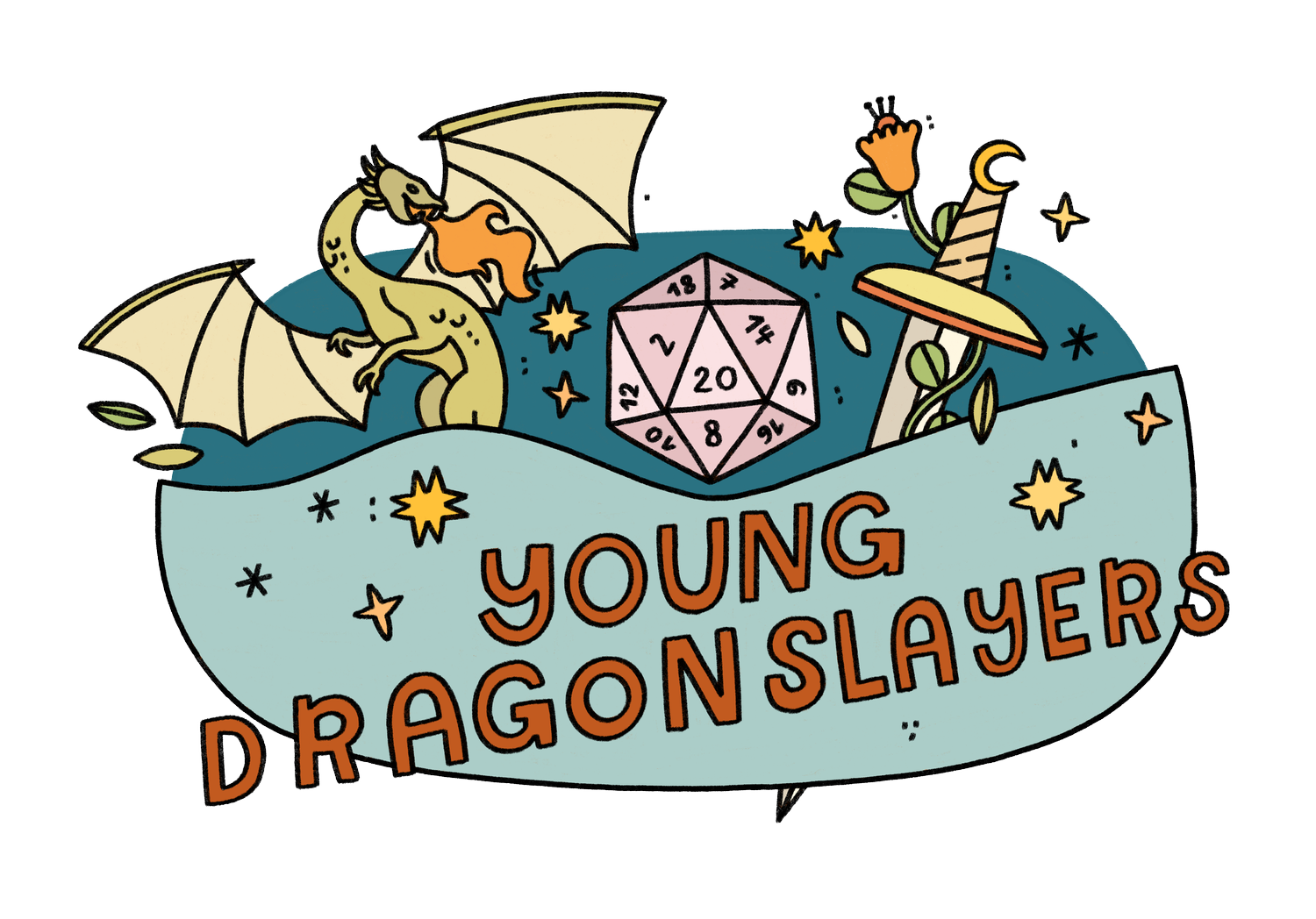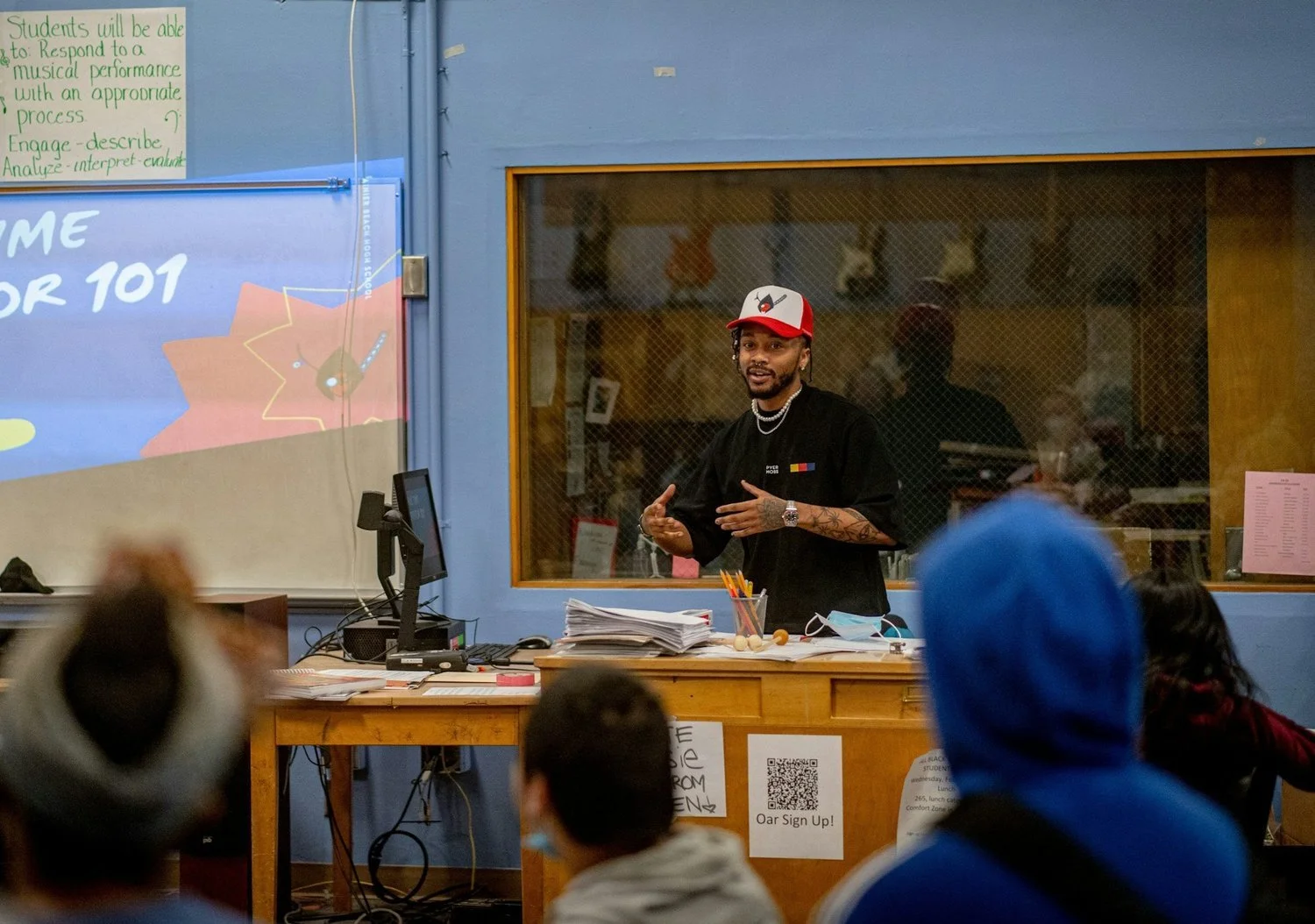How to Start a D&D Club At Your School
This back-to-school season has a lot of students thinking about how to make the most of this school year. Starting a Dungeons & Dragons club at your school could be a great way to play a game you love - and make some friends along the way! We run our own D&D clubs online, so we know a thing or two about getting them together - here's are some steps to take to do the same thing in real life.
Find Student Players for Your D&D Club
The whole reason you're making a club in the first place is to get other people to play with! This can feel like the hardest part, but the truth is that there are plenty of school-aged fans who want to play. In fact, 50 million people play D&D, and about 40% of them are under 25 years old. According to our math, that's enough players for 5 million four-person campaigns!
(Another statistic for female and nonbinary players who might be nervous to try - 60% of D&D players are male, so in a party of one Dungeon Master and four players, there will likely be at least one other non-male player.)
So clearly D&D players are out there - it's just a question of finding them. Telling the people you already know is a great way to start spreading the word. After that, it's time to gather interested players from outside your circle of friends. Posters are a good way to spread information in physical spaces and can be easily made using free siteslike Canva (it's what we use for all of our social-media posts)! Ask your teachers, secretaries, and counselors of they would be willing to hang your posters in their classroom or offices. Places where students at your school often spend time might be a good place as well, such as a nearby boba tea shop or your local library. If you are active online, making shareable posts on your personal pages, posting in subreddits, Discord servers, and other forums with users in your school, or asking others to post on your behalf is another way to spread the word and get more players for your club.
Gather Information From Interested Players
To find out about the people interested in joining your club, you'll need to collect a bit of information. Make sure to get emails or phone numbers so you can contact interested players. If you are able, you can also ask specific questions to ensure your club is serving all of its members.
Here is an example:
Name:
Pronouns (if desired):
Contact (email, phone number, Discord username, ect.):
What is your experience level with tabletop roleplaying games like D&D?
What kinds of tabletop roleplaying games are you interested in playing?
Are you interested in being a Game Master?
Which weekdays do you have time available during lunch?
Which weekdays do you have time available after school?
Is there anything else we should know?
Once you have enough people interested, you can use the information you've collected or pass it on to an advocate.
Find an Advocate for Your School D&D Club
Most schools don't let you meet on their grounds or get official club standing without a staff member or other adult who takes responsibility for hosting, monitoring, and scheduling the club. Any adult you trust could potentially be an advocate for your club: teachers, other school staff, family members, and community members are all potential options. Don't let yourself get too hung up searching for someone who understands and knows how to run tabletop roleplaying games (TTRPGs) like D&D; it's awesome when you can find someone who does, but you and the other members are more than capable of taking on the role of a Game Master!
Find a Game Master for Your After School Club
In most TTRPGs, the Game Master (GM) is the one who makes up the world, comes up with challenges and scenarios for the players to face, and uses the rules of the game to figure out what happens in this scenarios (they're the ones who get to say “Roll for initiative!”). If your advocate is willing to be a GM, this is a good option; they can organize the club, run the game, and make sure everyone is safe and having fun (in fact, we collected some resources for them to learn to do just that).
If your advocate isn't able to be a GM, you or another club member could very well be the Game Master your club needs. Many D&D clubs and similar groups are peer-lead, meaning students run games for other students. If you have played before and have access to a few helpful resources, it's totally possible for you to learn as you go. But if you'd like to be more prepared, you could take our Dragon Leaders course, which gives young D&D players all the skills they need to become Dungeon Masters.
If all else fails, there are also TTRPGs that don't require a Game Master to play. In these games events are determined by pre-written materials, random generators, and the players around the table. In these cases, we recommend having your advocate present to make sure things move smoothly if there is confusion or conflict regarding the rules of the game.
Pick a Game System for Your School Club
Dungeons & Dragons is by far the most popular TTRPG, and because of that, there are tons of awesome ideas and reference materials out there you can use in your games! It's also a genuinely good pick for players who like strategic combat, resource management, and a robust high fantasy setting - its part of why we choose D&D for all of our online games.
But there are many TTRPGs out there with different rules, ideas, mechanics, and more. One of them may be a better fit for what you and your club are looking to do. There is an excellent sortable list of games specifically for kids and teens on TTRPG Kids, but here are a few that our team recommend:
Katie recommends Kids On Bikes, where you play kids in a Stranger-Things-esque world grappling with strange and terrifying forces outside your understanding.
Zachery recommends Sentinels of the Multiverse, a GM-less game where you play as superheroes thwarting the nefarious plans of the villains who threaten the entire multiverse.
Sergio recommends Blades in the Dark, where you play as a crew of daring scoundrels seeking their fortunes on the haunted streets of an industrial-fantasy city.
Jaclyn (that's me!) recommends Honey Heist, where you play as literal bears trying to execute complicated criminal plans as they battle their feral instincts.
Jesse recommends Rifts RPG, which they describe as “basically a gonzo melting pot of all science fiction and fantasy tropes.”
Olivia recommends Monster of the Week, an action game inspired by shows like Buffy, Doctor Who, Supernatural, and The X Files where you play as an unlikely team of monster hunters.
Hannah recomends Call of Cthulhu, a game where older players investigate Lovecraftian mysteries in the 1920s.
Ultimately, you should pick a game that your Game Master would like to run (or a game that doesn't require one) and that your club members will enjoy. Choosing a game as a group could be a great activity for your first meeting!
(If your club has no budget to get these games, that shouldn't stop you. Let's Quest After School is a nonprofit organization that has compiled free digital resources on their web site and will send free physical games, dice, and other materials to public after-school clubs like yours! Dungeons & Dragons also offers free after-school club kits and an educator license for their online tool D&D Beyond.)
If You Get Stuck, Try An Online D&D Club
Sometimes not everything works according to plan; maybe your club members’ schedules don't line up, no adult is willing to advocate for your club, or you’re not able to agree on a game to play. Or, perhaps, you are simply craving even more D&D in your life, and you’re hoping to play with equally committed adventurers.
In times like that, online clubs like our might be the answer. We match up tweens and teens with similar play styles and schedules, assign them a professional Game Master, and run games online using nifty tools like Zoom, D&D Beyond, and virtual table tops. (And if you love D&D, there's nobody stopping you from making your own club and joining one of ours!)







